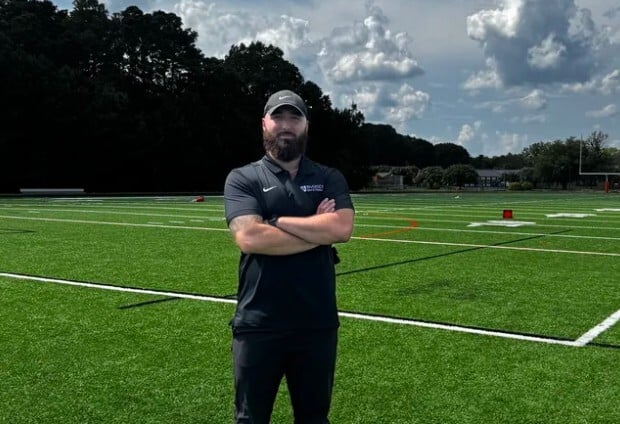Universities Enhance Mental Health Support for Athletes Amid Rising Suicide Rates
 Between 2002 and 2022, the suicide rate among NCAA athletes rose to become the second leading cause of death behind accidents, according to the British Journal of Sports Medicine. In response, universities are working to prioritize mental health for their student-athletes.
Between 2002 and 2022, the suicide rate among NCAA athletes rose to become the second leading cause of death behind accidents, according to the British Journal of Sports Medicine. In response, universities are working to prioritize mental health for their student-athletes. Northwest Missouri State University leads this effort, with its athletics department collaborating closely with Wellness Services. Assistant Athletic Trainer and Senior Woman Administrator Christy Tapps emphasizes the importance of both mental and physical care.
Northwest Missouri State University leads this effort, with its athletics department collaborating closely with Wellness Services. Assistant Athletic Trainer and Senior Woman Administrator Christy Tapps emphasizes the importance of both mental and physical care.
"The approach we take is to be proactive rather than reactive. Every person, every situation, is different, so how they want to access counseling resources will vary."
The university’s plan allows staff to identify and support struggling student-athletes, offering immediate assistance through on-campus Wellness Services. Counselor Rachel Mayfield highlights the tailored approach.
"Any athlete can come to anybody, and sometimes athletic trainers know, like, this might do better with a male counselor."
Missouri Western State University is also committed to monitoring athletes’ mental health. Volleyball player Lia Graham noted that both coaches and trainers actively check in on athletes.
"My coach is always open-door. She’s already told us, you guys are away from home, and that means I’m your mom. If you are in trouble, you call me first."
Griffon Soccer head coach Jacob Plocher echoed the comprehensive support at Missouri Western.
"It’s not just our staff who care about our players, it’s up and down the hallway. We get information and explore it to help in any way we can."
Bailey Gilbert, a former Missouri Western athlete now studying sports psychology at Kansas University, aims to support athletes on and off the field. Diagnosed with Autism, Gilbert found her place in sports and now pursues a career helping athletes manage pressures.
"Having someone who sides with you on the mental aspect and knows how challenging it is can be very beneficial."
As universities enhance their mental health support systems, they pave the way for a brighter, healthier future for student-athletes.
Check out the full article here!
![HR Logo [Recovered]_Full Color Vertical-1](https://blog.healthyroster.com/hs-fs/hubfs/HR%20Logo%20%5BRecovered%5D_Full%20Color%20Vertical-1.png?width=199&height=178&name=HR%20Logo%20%5BRecovered%5D_Full%20Color%20Vertical-1.png)
 By
By


